#Daniel barenboim
Text

2014 Vienna Philharmonic New Year's Concert with Daniel Barenboim — Johann Strauss I, Radetzky March, Op. 228
@tojibignaturals
228 notes
·
View notes
Text

Jacqueline du Pré y Daniel Barenboim
83 notes
·
View notes
Text
youtube
Jacqueline du Pré plays Dvořák - Cello Concerto in B minor, Op. 104, B. 191
London Symphony Orchestra
cond: Daniel Barenboim
Filmed live at the Royal Albert Hall in September 1968
53 notes
·
View notes
Text
This is my favourite version of my song. The pianist is Daniel Barenboim; I personally believe that his interpretation of this song is the best. Best is subjective, but that is my opinion.
~Nocturne🌘🎵
9 notes
·
View notes
Photo
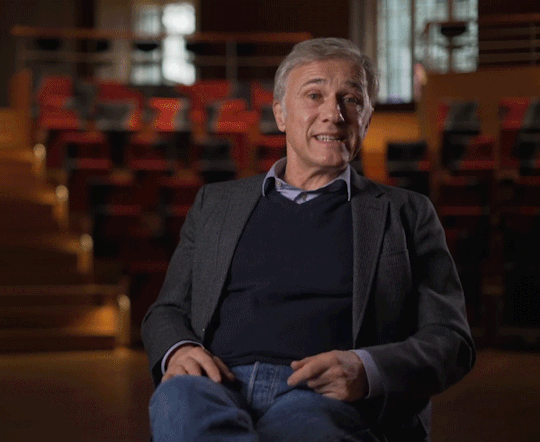
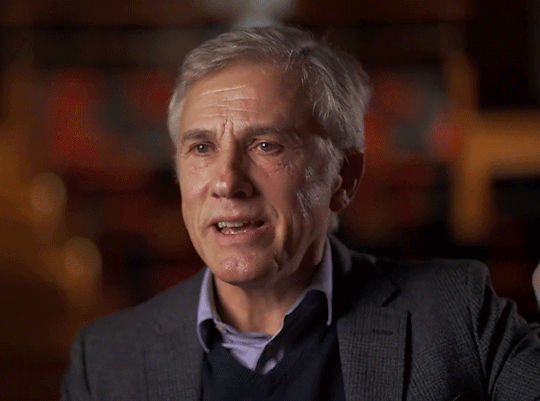
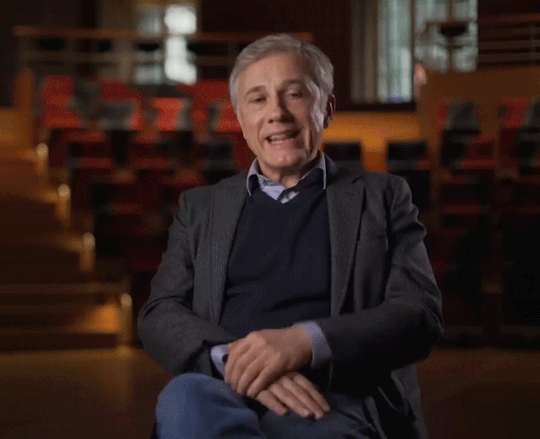
Christoph Waltz discussing his friend Maestro Daniel Barenboim on ARTE’s program Daniel Barenboim - 80 Years of Music and Commitment
60 notes
·
View notes
Text
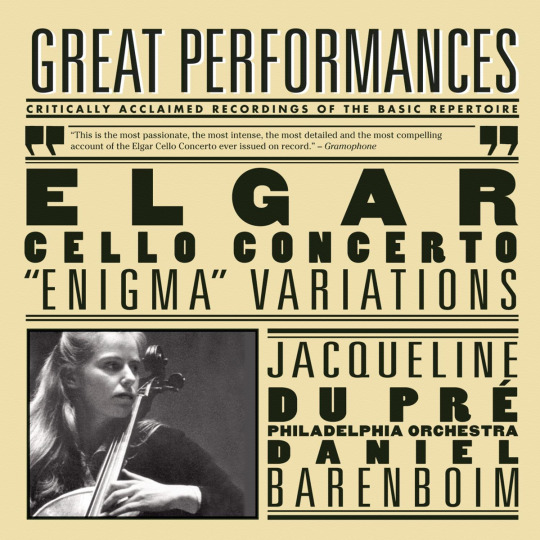
Elgar – Cello Concerto. "Enigma" Variations, Jacqueline du Pré (cello), London Philharmonic Orchestra (tracks: 1, 2, 7 to 21), Philadelphia Orchestra (tracks: 3 to 6), Daniel Barenboim (conductor), The Philadelphia Orchestra, «Sony Classical Great Performances», SK 92763, Sony Classical, 2004, Reissue, Remastered
#graphic design#typography#music#music album#cd#cover#jacqueline du pré#london philharmonic orchestra#the philadelphia orchestra#daniel barenboim#sony classical#2000s
16 notes
·
View notes
Text
#gustav mahler#symphony no.5 in c sharp minor#daniel barenboim#chicago symphony orchestra#rodrigo's dance#classical music#Spotify
4 notes
·
View notes
Text
youtube

#CONCERT MOVIE OF ALL FUCKING TIME#the trout#jacqueline du pré#daniel barenboim#itzhak perlman#pinchas zukerman#zubin mehta#classical music#also iykyk 😑
13 notes
·
View notes
Text
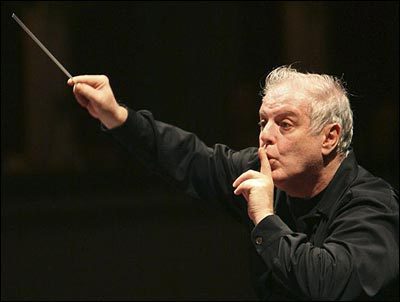
Daniel Barenboim, noto pianista e direttore d’orchestra, è nato a Buenos Aires da genitori russi di origini ebraiche, ma oltre a quella argentina, ha cittadinanza israeliana, spagnola e, dal 2008, anche palestinese.
Dirige un’orchestra e un’accademia musicale composta da israeliani e palestinesi nella convinzione che la musica possa essere un linguaggio per favorire l’empatia, il dialogo, la mutua comprensione e la pace.
Dopo la recrudescenza bellica tra Hamas e Israele, il maestro ha raccontato alla stampa internazionale il dolore per l’attacco del 7 ottobre, ma ha anche diffuso una serie di messaggi di speranza e di pace che è il caso di ricordare e diffondere.
Ne parlo qui:
3 notes
·
View notes
Text
youtube

—-Lenin
#daniel barenboim#Beethoven#Lenin#hey guess which part of this I don’t agree with#it’s the piece. that’s it. don’t feel as strongly about it. rare Lenin L#I mean you know it’s still…the appassionata…look I’m not like the other girls
22 notes
·
View notes
Text
What one makes music from is still the whole - that is the feeling, thinking, breathing, suffering, human being.
Gustav Mahler
On 26 June 1912, Gustav Mahler's 9th Symphony was given its posthumous premiere in Vienna with Bruno Walter leading the Philharmonic. This profoundly valedictory work - the last Mahler completed before he died - is considered by many Mahler devotees to be his greatest achievement.
Back in the late-nineteenth and early-twentieth centuries, a superstition developed in the classical music world that prophesied the Ninth would be a composer’s last symphony. Arnold Schoenberg summed it up in an eloquent fashion, stating that “he who wants to go beyond it must pass away. It seems as if something might be imparted to us in the Tenth which we ought not yet to know, for which we are not ready. Those who have written a Ninth stood too close to the hereafter.”
To support this, history gives us Beethoven, Schubert, Dvorák, Bruckner, Mahler, and Vaughan Williams, who either died after completing the ninth (Dvorák waited ten years) or never made it through a tenth. We’ll overlook Shostakovich, who not only completed a ninth but went on to write and publish six more. He was Shostakovich, after all. Even death kept a wary, respectful distance.
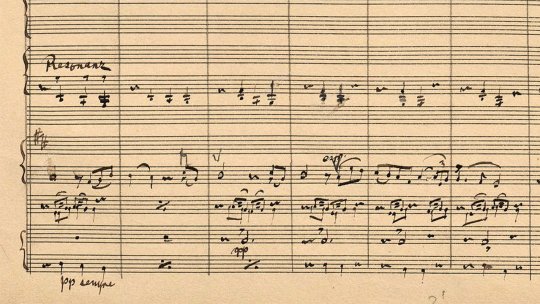
Mahler, some say was superstitious about the matter, tried to sneak around it by calling his ninth symphonic-length work, “Das Lied von der Erde,” a song-cycle rather than a symphony. He bravely undertook his Ninth, rife with its intimations of death and the ache of the human condition, and published it (although he never heard it performed). A year later he began working on his Tenth, but, true to the curse, he died before finishing it. Although he’d sketched out the whole symphony, only the first movement, “Adagio,” and a brief third movement, “Purgatorio,” are complete.
I’m not sure I buy it that this was Mahler’s song song as he saw it. I think that’s just a convenient mythos that enveloped around the traumatic death of one of finest composers ever. Far from going gently into a sort of pre-deathly contemplation, Mahler was full of plans, action, and music in the years when he was writing the Ninth Symphony. He was taking up his post at the Metropolitan Opera in New York, writing Das Lied von der Erde, preparing for the premiere of the Eighth Symphony, and writing, but not completing, what would truly be his last symphony, the Tenth. That’s another danger of thinking about that last page of the Ninth Symphony as the end of Mahler’s compositional life. It’s not: for Mahler, and maybe for us, it should be an insight into life - albeit a life transformed after the intensity of what you’ll have been through after listening to any complete performance of his symphony - rather than a leaving of it.
Daniel Barenboim conducts Mahler's 9th Symphony with the Stasoper Berlin orchestra.
#mahlet#gustav mahler#quote#9th symphony#composer#classical music#music#beauty#aesthetics#sound#jinx#death#legacy#daniel barenboim#arts#culture#german#high culture
37 notes
·
View notes
Video
youtube
Daniel Barenboim plays Beethoven Sonata No. 8 Op. 13 (Pathétique )
25 notes
·
View notes
Text
Trippin in Tristan Part 2 /2: Siegfried Jerusalem’s Brilliant Blunder (and why it is so precious)
alright fellow nerds, this is something I’ve been wanting to share for a long time. *cue powerpoint*
This event happens in the filmed 1995 Bayreuth Tristan, and it involves other key players Waltraud Meier and Daniel Barenboim.
We are at the climax of the love duet. The second to last one, to be precise. Just a few minutes prior, Jerusalem already made several slips. He repeated a lyric thrice. He took a hasty breath in the middle of a phrase, leaving out a note. Not like anyone really cares. He sounds great. Meier sounds great. Their voices go really well together.
This is the original score(piano transcription for easier readability).

Everyone’s attention is on Meier as she does her “endlos” drop (5th down) followed by a breathtaking leap(octave up) upwards to “ewig”. But wait.
Tristan’s lyric order should have been “endlos, ewig, ein-bewusst”. Instead of the open vowel of “endlos”, Jerusalem hit the right note but on the closed vowel in “ewig”. Now he’s stuck on the wrong lyric, thinking about what to do.
He could flip the first two lyrics and keep the notes intact. “endlos” and “ewig” have the same amount of syllables. But in the moment, he decides to both flip the lyrics and improvise.
He holds “ewig” until the right chord changes in the orchestra. Now, he does the unexpected(or is it the expected?).
He sings “endlos” with the same rhythm and interval pattern as Meier.

Well, nearly. Being the experienced musician that he is, he chooses the same notes as the chord in the orchestra. Instead of the octave jump, he aims a little higher to land at the right note he’s supposed to hit(it’s a 9th).
All the while, clever Barenboim in the pit is holding the orchestra out, waiting for him to hit the high “ein-” in the next word. Meier too holds just a tiny bit longer on her note.
Jerusalem hits his note. The orchestral wave is unleashed right after, and Meier shifts a note down as written to harmonize. Everyone is in bliss, and everything goes back to normal.
But hold on. Hold your horses. We need to rewind that mistake a million times.
Here is the incorrect version, starting from the beginning of the final build-up: https://youtu.be/lQNcTYVlcEg?t=2260
Here is what the climax is supposed to sound like with the same two singers and conductor: https://youtu.be/Q14GHL1C21o?t=407. (ignoring Jerusalem’s voice crack at the very end if you listen long enough)
This recording of the duet was the first one I heard in its entirety. When I looked for other versions of this duet, I was confused why the ending didn’t sound right. I eventually realized that Jerusalem made a mistake. *shocked pikachu face*
I love it though. *cries in the corner because there’s only one recording*
So what makes the mistake+improv so good imo? “I’ve got a little list”
1. It’s cute. He’s basically following Meier’s lead.
2. It’s extremely satisfying to our ears and brains. Isolde’s high jump is already amazing, and now we get Tristan’s high jump too? Heck yeah.
3. It makes the entire climax more powerful. It really reminds me of a beat drop. There’s a last second push to the top that was not there in the original score. Even Barenboim realizes this and does some rubato so the wave comes after Jerusalem’s high note instead of directly on top of it.
And now we come to the most important reason.
Let us zoom out to the big picture. Tristan, Isolde, and the orchestra are three players in this drama. In this moment, what does the orchestra represent?
There is no right answer here. My personal interpretation is that it is waves of desire, waves of tragic narrative that T&I are treading water in. When they drown, they give up the battle, succumbing to nature and the storyteller’s whim.
Notice how in the original score, it is only Isolde who leads the buildup and breaks free from the waves at the climax, jumping an octave. All of Tristan’s notes hide lower within the waves, functioning more as harmony than an independent melodic line. When he does get his high note, it is exactly when the orchestral wave reaches its peak, so he never quite escapes.
This is not normal. For the past half hour, we’ve been watching Tristan und Isolde singing together. Their vocal lines overlap, dancing circles around each other. When one person calls, the other person answers. To have Isolde and Tristan separated at such a crucial moment is jarring.
To me, this is foreshadowing.
Perhaps it means that they will not die together. Perhaps it means Tristan will die first. Perhaps it means only Isolde will get a Liebestod.
It is clear though that there is a border that separates Tristan and Isolde during the climax. They are not meant to be.
Now let’s think about Jerusalem’s improv version.
Isolde escapes first. Tristan joins her with his own high note.
They are floating together, watching the giant wave of orchestra about to crash and envelop them. Even if it’s for a split second, Wagner’s foreshadowing language tells all.
To put it plainly,
4. It paints a non-existent happy ending.
And that’s what makes it beautiful.
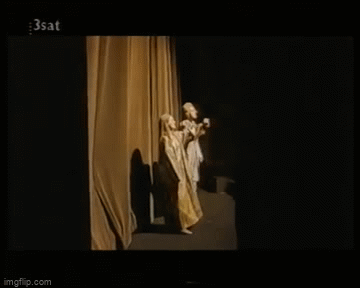
#opera#operatag#operablr#wagner#tristan und isolde#tristan#classical music#pearlKnight#siegfried jerusalem#waltraud meier#daniel barenboim
19 notes
·
View notes
Text
ARTE shows program focus on TV and online for Maestro Daniel Barenboim's 80th birthday. Online from November 12 to December 12, 2022 TV premiere: Sunday, November 13, 2022 at 5:40 p.m.
Christoph Waltz will be included to speak on his friend Daniel!
9 notes
·
View notes
Video
youtube
Beethoven Symphony No. 9 - Mvt. 4 - Barenboim/West-Eastern Divan Orchestra
Happy German Unity Day!! . . . As always, I am presenting yet another version of Beethoven’s 9th Symphony.
It is not hard to understand why the Ninth enjoys such iconic status. It is the classic symphonic journey from darkness to light, from minor to major, and from chaos to order. It is also a massive undertaking, still one of the longest pieces in the symphonic repertoire. Beethoven's introduction of a chorus in the final movement — singing Schiller's Ode to Joy — gives the piece the searingly optimistic finale to end all finales. The message that all mankind will be brothers (no mention of sisters) is at the heart of its appeal.
That universal message has always carried unique power in modern Germany. When the controversial Wagner festival in Bayreuth reopened after the Third Reich in 1951, Beethoven's symphony was chosen to mark the occasion – good Germany chasing out bad Germany. When the Berlin Wall fell, the Ninth was performed to celebrate the country's reunification too. Nowadays the Ninth is also the anthem of the European Union. No one knows if the EU will still exist in a century's time. But the Ninth, and the statement it makes, are indestructible – even on a desert island.
More about Beethoven’s 9th Symphony here
More about the West-Eastern Divan Orchestra here
#youtube#beethoven#beethoven symphony no. 9#ode to joy#schiller#daniel barenboim#music i love#classical music#bbc proms#national youth choir of great britain#west-eastern divan orchestra
7 notes
·
View notes